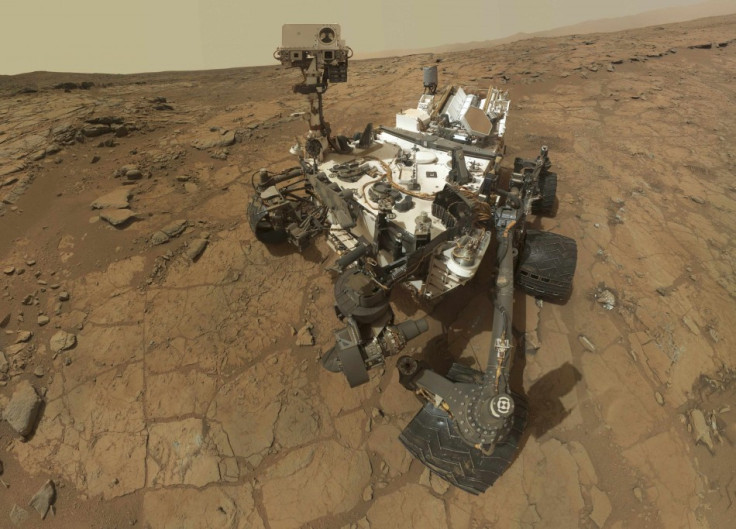Meteorites Most Probably Delivered Carbon and Hydrogen To Mars, Says Study

The organic compound chloromethane found recently on Mars most probably came from its soil, with carbon and hydrogen delivered by meteorites that bombarded its surface.
The new study removes some amount of doubt that the experiment results were contaminated by earth-based molecules carried by the rover.
However, the team of German and British scientists are not ruling out that microorganisms that once lived on the planet could have provided the organic matter.
The team led by geoscientist Frank Keppler from Heidelberg University arrived at the conclusion after their investigations on samples of a 4.6 billion year old meteorite found in Australia in 1969.
Nasa's rover Curiosity which landed on Mars in August 2012 has conducted investigations on Martian soil and detected chloromethane by heating soil samples.
But experts have since suggested that this could have formed in reactions between perchlorates in Martian soil and carbon and hydrogen originating from the rover.
The study looked at different sources of carbon and hydrogen, one of which was the meteorite.
According to Keppler, the meteoritic material contained 2% carbon.
When heated in the presence of chlorine they observed chloromethane. "The ratio of heavy to light carbon and hydrogen atoms, known as the isotopic fingerprint of a gas, clearly shows that the organic material has an extraterrestrial origin," Keppler says.
With a relatively large amount of similar micrometeorites believed to fall on the surface of Mars each year, it was concluded that this could have brought the carbon and hydrogen to Martian soil.
Iron oxide minerals detected on Mars by the rovers have suggested the presence of water on the red planet. The study on Nakhla meteorite has also confirmed this as scientists ponder the possibility of organic life which once thrived on the planet.
© Copyright IBTimes 2024. All rights reserved.





